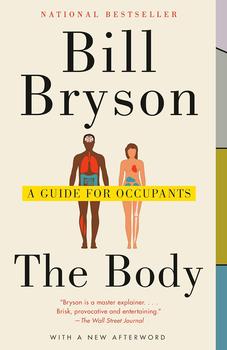Summary | Excerpt | Reviews | Beyond the book | Read-Alikes | Genres & Themes | Author Bio

Predators, Parasites, and Partners That Shape Who We Are Today
by Rob DunnSome readers may feel that the message biologist and noted science writer Rob Dunn conveys is somewhat unsavory, but no one can deny his delivery is outstanding. In other words, you won't want to shoot this messenger just because his assertions have a certain "ew" factor. With a brio and rakish good humor only a biologist can bring to the table, Dunn details exactly how "biological" we human beings are - even as we try our darnedest to separate ourselves from the microscopic, symbiotic critters he calls "mutualists."
His message? That having a chubby, wriggly worm in our gut is exactly what the doctor should order. Okay. Maybe, maybe not. But to summarize the take-away of this book, human beings better wake up to the fact that we are intimately - super intimately - dependent upon most of the yucky, slimy creatures from which we're currently trying to escape. Dunn documents numerous case studies that conclude it is the very parasites we have strived to eliminate from our lives that could prevent such developed world diseases as asthma, diabetes, and even Crohn's disease.
He lays a lot of the blame for the wholesale slaughter of good bacteria at the doorstep of modern-day antibiotics, which started with one of the most revered men in medical history, Sir Alexander Fleming. It is clear that Dunn holds no truck with the likes of the father of penicillin, whom he refers to as a "haphazard visionary of life." For it was when scientists and physicians started believing they could cure every illness known to man with just the right antibiotic that the real trouble began. Unfortunately, it is a notion still held by millions of people who believe that the only good bacteria are dead bacteria. And so we scrub and sanitize and sterilize everything in our environment to the point of making ourselves sicker.
Sure, parasites are called parasites because they live off us. It's a bad rap, says Dunn, because ours is a symbiotic, mutually beneficial relationship. While the parasites are along for a ride in our guts, they are actively working to make our immune systems stronger, better able to combat interlopers who would do us harm. He cites one study that supports the theory that certain parasites actually combat salmonella delivered by spoiled food. However, if antibiotics - either taken intentionally or not (i.e. via antibiotics present in our food) - kill those parasites, the host (you for example), will get violently, even fatally ill.
There is more. Oh, so much more here... about the importance of the appendix for one. You know that tiny organ that medics snip away with abandon because it is supposedly an obsolete, prehistoric hanger-on? Dunn reveals new research that explains why the appendix is important. But you'll have to read the book to learn about that. And about the intestinal worms. And about the highly efficient microbes that can turn a nice plateful of pasta into fat...
Dunn's wry wit and his ability to relate potentially dry, if not downright boring scientific material in entertaining, non-clinical language makes me wish I could audit a few of his classes. And that's going some because science is not my long suit.
![]() This review
first ran in the August 4, 2011
issue of BookBrowse Recommends.
This review
first ran in the August 4, 2011
issue of BookBrowse Recommends.

If you liked The Wild Life of Our Bodies, try these:

by Bill Bryson
Published 2021
Bill Bryson, bestselling author of A Short History of Nearly Everything, takes us on a head-to-toe tour of the marvel that is the human body. As addictive as it is comprehensive, this is Bryson at his very best, a must-read owner's manual for everybody.

by Michael E. McCullough
Published 2020
A sweeping psychological history of human goodness -- from the foundations of evolution to the modern political and social challenges humanity is now facing.
Your guide toexceptional books
BookBrowse seeks out and recommends the best in contemporary fiction and nonfiction—books that not only engage and entertain but also deepen our understanding of ourselves and the world around us.